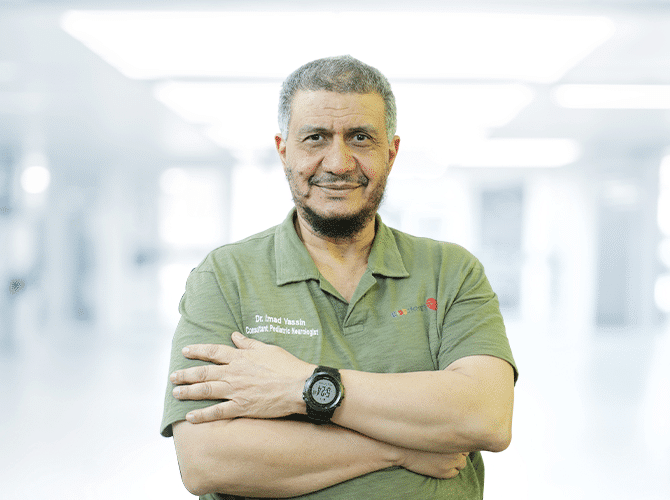Tic Disorders and Tourette Syndrome Management
Tic Disorders and Tourette Syndrome Management
Helping Children Navigate Unwanted Movements

Tourette Syndrome is a specific type of chronic tic disorder involving both motor and vocal tics.
Our Pediatric Neurology team offers thoughtful evaluation and compassionate care across Abu Dhabi, Dubai, and Al Ain — because every child deserves to feel understood, not judged.
Tourette Syndrome is a specific type of chronic tic disorder involving both motor and vocal tics.
Our Pediatric Neurology team offers thoughtful evaluation and compassionate care across Abu Dhabi, Dubai, and Al Ain — because every child deserves to feel understood, not judged.

What Are Tic Disorders and Tourette Syndrome?
Tics are involuntary, repeated actions that can affect the body (motor tics) or involve sounds (vocal tics). They may look like:
- Eye blinking, facial grimacing, shoulder shrugging
- Sniffing, throat clearing, grunting, or repeating sounds
Tic disorders include:
- Transient tic disorder: Short-lived, often resolves on its own
- Chronic motor or vocal tic disorder: Persists over a year, involves one type of tic
- Tourette Syndrome: Both motor and vocal tics, lasting more than a year
Tics can come and go, get worse with stress, or improve during focused activities. They often begin between ages 5–10.
When Should You See a Pediatric Neurologist?
We recommend evaluation if your child:
- Has tics lasting more than a few months
- Has both motor and vocal tics
- Shows distress or social withdrawal because of their tics
- Is being teased or struggling in school
- Has co-occurring issues like ADHD, anxiety, or obsessive behaviors
- Needs clarity on diagnosis or school planning
Early support helps your child feel more in control — and less misunderstood.
How We Evaluate and Manage Tic Disorders
Here’s our approach to care:
- Clinical History and Behavior Review: We ask about when tics started, how they change, and what settings affect them.
- Neurological Examination: This helps rule out other movement disorders.
- Co-occurring Conditions Screening: Many children with tics also have ADHD, anxiety, or OCD traits — and we address the full picture.
- Video Review (if available): Home recordings often help clarify symptoms.
- Management Plan: Depending on severity, we may recommend education, behavioral therapy, or medication — always child-sensitive and family-informed.
Our goal is to help your child function confidently — not just suppress the tics.
Why Families Trust KidsHeart
- Pediatric Neurologists with expertise in movement and behavior disorders
- Practical, kind strategies — not just “watch and wait”
- Coordination with psychologists, schools, and therapists
- Support for co-occurring ADHD, anxiety, or learning needs
- Clinics in Abu Dhabi, Dubai, and Al Ain
Because how your child feels matters just as much as what they do.


Dr. Imad Yassin
Consultant Pediatrician/ Pediatric Neurologist – FRCPCH(UK) | Facharzt, FAMAP, Pediatric Neurology Cert (Austria)
Noticed Unusual Movements or Sounds in Your Child? Let’s Understand Why
If tics are affecting your child’s daily life, we’re here to help — with empathy, insight, and the right tools.
Frequently Asked Questions (FAQs)
No. Tics are neurological but not dangerous or damaging to the brain.
Many tics fade or become less noticeable with time, especially with support.
It’s more common than many think — especially in children with other neurodevelopmental traits.
Not always. Many kids benefit from behavioral strategies or school accommodations first.
Yes. Tics often increase with fatigue, anxiety, or excitement — and decrease with calm focus.

